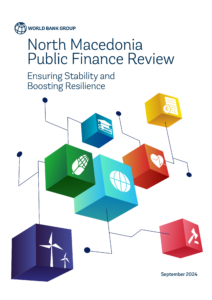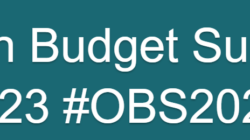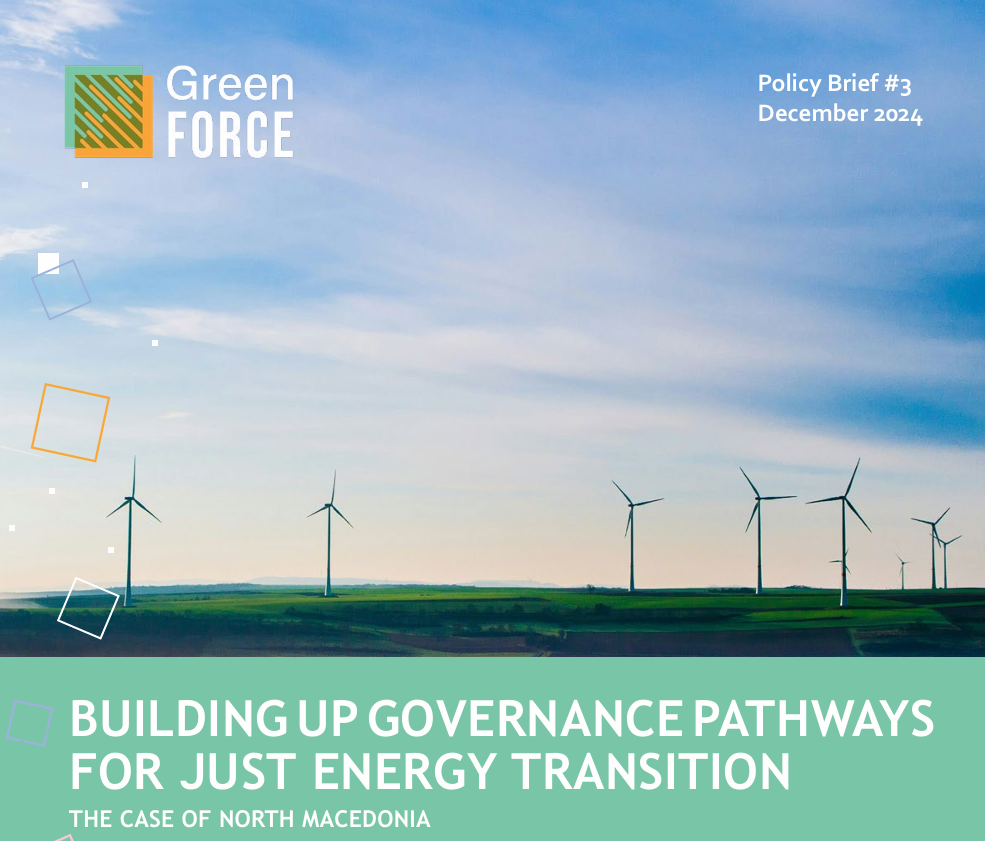Building effective governance structures, anchored in the local realities, is vital to deliver a just energy transition. Identifying and implementing good practices around local stakeholder engagement is an essential precondition for developing place-based policy measures that address the possible impacts of energy transitions on different social groups and across regional territories in a country.
This policy brief examines energy transition policies and the extent to which governance and stakeholder engagement processes can deliver policies and outcomes which are socially and spatially just. The case of the Republic of North Macedonia (RNM) is used as an example to uncover the governance challenges associated with decarbonisation and the just energy transition. Although the subject is complex and cannot be directly transposed to other places, the experience of the RNM provides lessons relevant to other countries in the Western Balkan (WB) region and beyond with shared just energy transition challenges.
Although there is growing recognition of the need to a shift towards a more sustainable energy market, the economic and social costs are a major challenge. Nevertheless, in the broader context of decarbonisation, closing carbon-based plants is not a question of if or when, but rather how it will be implemented. The RNM has outlined legislative and policy frameworks for fostering renewables and energy efficiency. While these commitments are commendable, there are areas that could benefit from further attention challenged by 1) unclear operational governance structures; 2) insufficient investments; 3) limited stakeholder engagement; 4) gaps in regulatory frameworks; 5) limited social acceptance; and 6) energy security. Therefore, identifying and applying good energy transition governance and stakeholder engagement practices is essential for overcoming these challenges.
Governing the just green transition demands a collaborative effort between several government entities and various stakeholders from the civil society and the private sector. The national government sets the overarching regulatory framework and policies, including emissions targets and mechanisms for incentivising renewable energy production and sustainable practices across sectors. This requires coordinated efforts and negotiation across ministries and agencies responsible for practical implementation and monitoring.
To read full publication click here
















